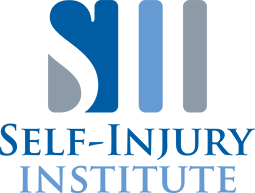Here at KISI, one of the things we value most is education. Not the kind of education that sometimes means confusing concepts, excessive homework, or the inherent frustration that can come along with it; but the kind of education that teaches us about ourselves and how we work. In other words, the type of education that makes life a more enriching thing to experience.
Being both a mental health professional and a certified personal trainer, I can attest to the fact that learning about—and practicing—exercise and nutrition has enriched my life far beyond what I could have imagined. Not only has it made me confident about myself and my body—which can be quite a challenge, especially for women and teenagers—but it has also become my medicine for life. As cheesy as it sounds, I can’t emphasize enough how good it makes me feel, both physically and mentally.
Unfortunately, there are some serious challenges involved for those of us who want to use exercise and nutrition as a way to enhance our mental health. It shouldn’t be very difficult to start, but our culture has made it that way. Even the first thing we are faced with is perhaps the most daunting: we must sift through endless amounts of enticing myths and “quick fixes” in order to find the truths that will make our bodies and minds feel better. After that, assuming we actually have the truth (and by that I mean information that is actually backed up by research), we are somehow expected to know how to make that information work in our own lives.
Essentially, my point is this: getting the life-changing benefits of exercise and a healthy diet is hard. Not because we are weak or lazy, but because we don’t know the truth and we usually don’t have anyone to help us. If you have tried to lose weight, go on a diet, or try something new at the gym, you know what I am talking about—it’s usually just an attempt to try something that will make us feel better about ourselves. So how is that not related to our mental health?
Because I believe that being mentally healthy is just as important as being physically healthy—and that the two are impossible to separate—this will be the first of many blog posts about these “healthy truths” I am talking about. The point is not to try to become what others think we should be, but to learn about ourselves and discover new tools so that we can work towards becoming the person we want to be.
Look out for the next Health and Exercise post, Want to Get Fit? Eat More Fat! And in the mean time, think about your own health goals (both mental and physical) and what makes them important to you.
-Katie Rosenberry is a Fellow and the Research Coordinator at the Kahn Institute for Self-Injury.
